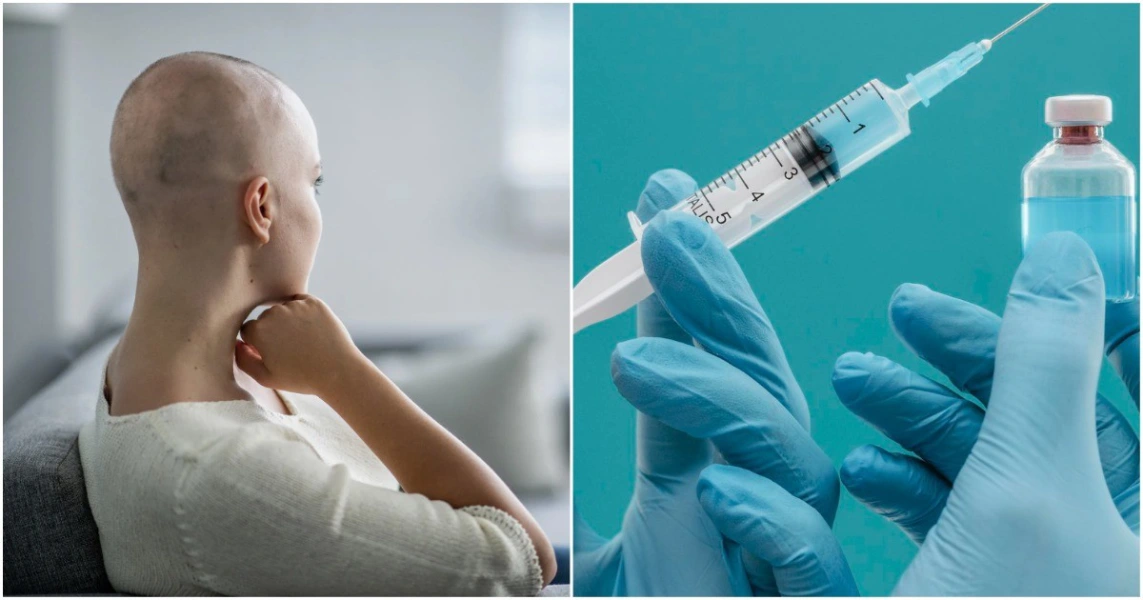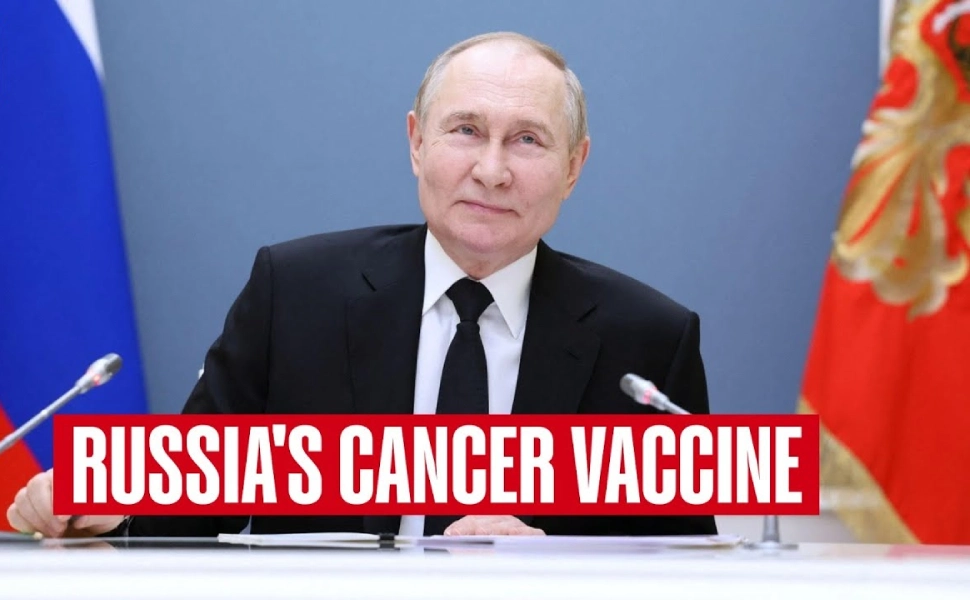Russian cancer vaccines, such as Enteromix, are innovative mRNA cancer vaccines designed to train the immune system to recognize and destroy cancer cells. These therapeutic and often personalized immunotherapy solutions use messenger RNA technology similar to COVID-19 vaccines to instruct cells to produce proteins (antigens) specific to tumor cells. The resulting immune response helps target and kill malignant tissues, offering a promising approach to treating cancers like colorectal cancer, glioblastoma, and melanoma.

Why Are Russian Cancer Vaccines in the News Now?
Russia’s Federal Medical and Biological Agency (FMBA) recently announced that Enteromix has completed several years of research, including three years of preclinical trials, demonstrating both safety and efficacy. Reports indicate tumor shrinkage of up to 60–80 % and improved survival rates. The vaccine is now moving into clinical use and is being offered free to patients in Russia.
Are Russian Cancer Vaccines Truly Free for Patients?
Yes—according to official reports, the Russian government plans to provide Enteromix free of charge. The estimated cost per patient (around 300,000 rubles) will be covered by the state, ensuring broad accessibility in a low-resource setting.
What Types of Cancer Does Enteromix Target?
Initially, Enteromix is intended for colorectal cancer, with ongoing developments for treating glioblastoma, advanced melanoma, and ocular melanoma. As a therapeutic cancer vaccine, it aims to treat existing tumors rather than prevent cancer from developing.
How Effective Are mRNA Cancer Vaccines Like Enteromix?
Early data suggest promising efficacy, with tumor growth reduction between 60 %–80 % and improved patient survival. While these results are not yet universal, they have generated considerable attention across the field of therapeutic cancer vaccine research.
Are There Global Precedents for mRNA Cancer Vaccines?
Yes—worldwide, neoantigen-based mRNA vaccines and personalized therapeutic vaccines have shown encouraging results in early-stage trials. Studies in melanoma, pancreatic, and colorectal cancers have demonstrated robust immune responses and longer survival rates, reinforcing the promise of Russian cancer vaccines.
What Are the Challenges and Future Prospects for Russian Cancer Vaccines?
Regulatory Hurdles
Domestic rollout is underway, but international expansion will hinge on approvals from organizations like WHO, EMA, or FDA.
Personalized Manufacturing
These vaccines rely on patient-specific tumor profiling, which poses scalability and logistical challenges for mass production.
Cost and Resource Constraints
While Russia funds initial distribution, long-term cost-effectiveness and access will be critical for sustainability.
Immune Complexity
Success depends on selecting the right tumor antigens (TSAs) and overcoming immune suppression. Combination regimens with checkpoint inhibitors are a promising path.
Conclusion
Russian cancer vaccines such as Enteromix showcase how mRNA and personalized immunotherapy are moving from theory to real-world application. Backed by the Russian government and early pre-clinical results showing tumor shrinkage of 60–80 %, the program combines cutting-edge science with free public access inside Russia.
If larger human trials confirm these benefits and international regulatory approvals follow, Russian cancer vaccines could become a new pillar of global oncology care—especially for hard-to-treat cancers like colorectal, glioblastoma, and melanoma. While manufacturing, cost, and immune-response complexity remain challenges, the model positions Russia as a key player in next-generation therapeutic cancer vaccines.
FAQ
Q1: What makes Enteromix different from traditional cancer treatments?
It uses mRNA technology to train the body’s immune system to attack cancer cells marking a shift to personalized immunotherapy rather than chemotherapy or radiation.
Q2: Is the Russian cancer vaccine available outside Russia?
Not yet international use would require approval from global regulatory bodies like the WHO, EMA, or FDA.
Q3: How safe is the vaccine?
Preclinical trials reported it to be safe, even with repeated doses, though detailed human trial data are still pending.
Q4: Who provides the vaccine for free?
The Russian government covers the cost, making it free for patients domestically.
Q5: Could this technology work for all cancers?
The potential exists therapeutic and universal cancer vaccines targeting neoantigens are under exploration, but effectiveness varies by cancer type and individual tumor biology.

